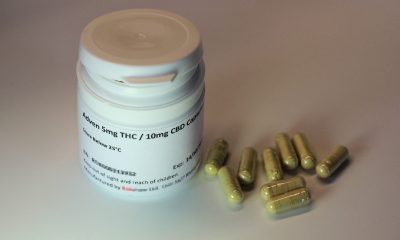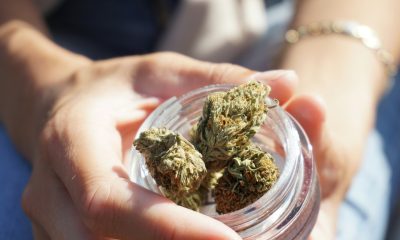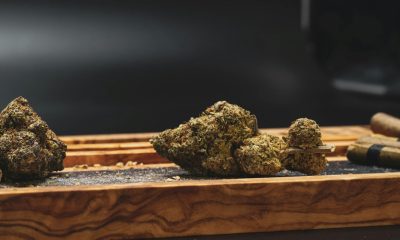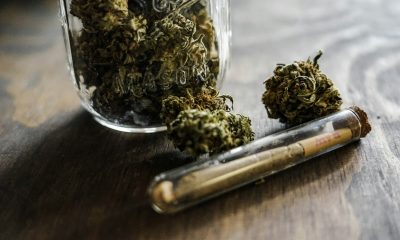Cannabis
Medical cannabis exports in Colombia on hold
Interest in the Colombian cannabis sector is growing with each passing day. Those already operating in the sector have experienced commercial success and newcomers are eager to get involved in the cannabis market. As business opportunities for both local and foreign cannabis producers in Colombia continue to increase, other countries in the region are now moving toward cannabis legalization.
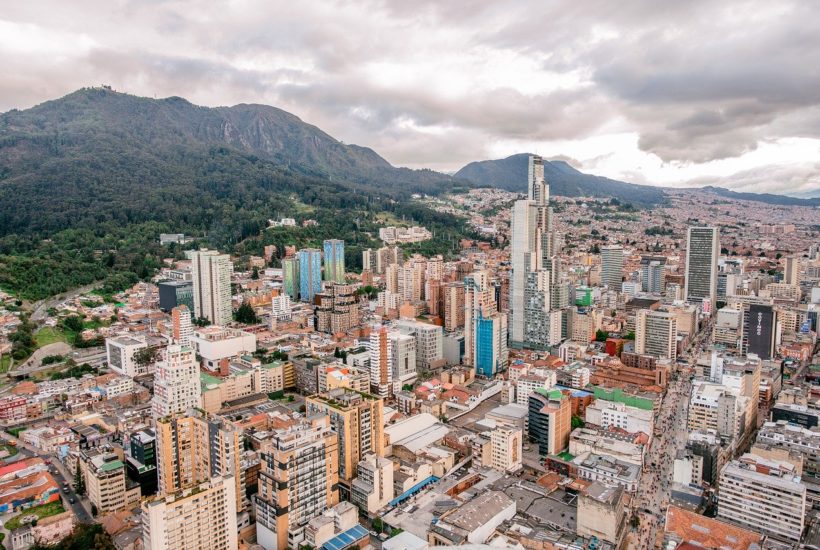
Despite regulations that allow companies to acquire licenses for cannabis production in Colombia, there is a speed bump in the road ahead for companies to export large quantities of medical cannabis. Both local and foreign entrepreneurs saw huge opportunities in the columbian cannabis sector but new laws against cannabis exports in Colombia could threaten their ambitions.
Companies have not been able to export large quantities due to delays in the allocation of quotas, which allow companies to produce and also export cannabis for medical and scientific purposes. Another factor that complicates the situation is linked with the wait for the modification of decree 613, that would specifically regulate the guidelines to be able to develop the issue of exports.
The latest CBD & Cannabis updates are now at your fingertips, with notifications and fresh information offered by our companion, the CBD News App. Stay up-to-date with marijuana stocks for investments, global market, cannabis legalization and more. CBD News is a mobile app that focuses exclusively on CBD. It brings you the very latest news in the CBD industry.
“Countries like Mexico, Brazil, Ecuador, and Peru are beginning to regulate the issue of medical cannabis. Colombia used to have an advantage in terms of time, but is now losing it due to slow government action. At the same time, the progress of other countries is causing Colombia to lose strength and the opportunity to be a pioneer in this issue worldwide,” explained William David Calderón Aguilar, legal representative of the Colombian Cannabis Association.
Thus, the sector is waiting for the respective modifications to be made to the decree. Additionally, steps towards establishing a direct dialogue with the Government through associative or corporate entities. They would represent different people and companies in order to establish working tables, which will allow solutions to be provided to the issues that are currently presenting themselves. This will also ensure that the State has accompaniment from the associations since they show a lack of knowledge on the part of some officials.
However, the International Narcotics Control Board (INCB), an organization attached to the United Nations (which determines the quotas of controlled substances in the world), gave Colombia a quota for cultivation and production of 56 tons, a figure that would allow the country to be a world leader in cannabis cultivation.
Regulations
Currently, any company or individual, whether Colombian or foreign, can apply to the Ministry of Health and Social Protection for the issuance of licenses to manufacture cannabis derivatives for medical or scientific purposes. Law 1787, which was raised in 2016, regulates the production and commercialization of cannabis; the initiative came from Senator Juan Manuel Galán.
Decree 613 established in April of 2017, included benefits for small producers and growers of cannabis for medicinal purposes, establishing the differences between psychoactive and non-psychoactive cannabis and regulating the marketing and research of seeds. The approval of the bill was an achievement due to the various cases that arose not only inside, but also outside the country, where no type of medicine worked to calm certain ailments or diseases.
“The decision was made on the basis of several case studies, especially with the issue of refractory epilepsy, as even anti-convulsants were not working to mitigate the symptoms of the disease. Fortunately, the bill was successful and now there is a regulation that governs the entire issue of production, transformation, and commercialization,” said Calderon Aguilar.
For Germán Darío Ramírez Hernández, lawyer and professor at the Law School of the University Foundation of the Andean Area, this sector is booming, as the Ministry of Health has gone from having 10 requests for places per month to 40. Medical cannabis can provide pain relief, serves as a bronchial moisturizing component, anti-inflammatory, and regulates the endocannabinoid system which in turn improves metabolism activity.
Different licenses
The Ministry of Health and Social Protection grants the license for the manufacture of cannabis derivatives and processing. Where as, the Ministry of Justice processes the license for import, export, planting, storage, distribution, transportation, among others.
The National Narcotics Fund carries out administrative and operational control once the license has been issued, and verifies the finished products. The Invima, certifies the sanitary practices when the product is going to be commercialized, and the ICA verifies the agricultural process of cultivation of seeds.
According to the Ministry of Justice, licenses for the cultivation of psychoactive and non-psychoactive cannabis may and can be granted to associations composed of small and medium-sized national growers or producers and marketers of medical cannabis under the condition that all their members meet the criteria to be considered as such.
The study of license applications lasts up to 30 days if they prove compliance with the general, and the specific requirements established for each type of license.
Solutions
With regards to the process of regulating the production and the processing of medical cannabis, the Government issued several solutions, such as solution 579, issued in 2017. Solution 579 determines the criteria for defining small and medium-sized growers, as well as stipulating the technical requirements and fees for cultivation. Similarly, there are parameters where 10 % of the total production must come from a small or medium grower.
__
(Featured image by bergslay via Pixabay)
DISCLAIMER: This article was written by a third party contributor and does not reflect the opinion of Hemp.im, its management, staff or its associates. Please review our disclaimer for more information.
This article may include forward-looking statements. These forward-looking statements generally are identified by the words “believe,” “project,” “estimate,” “become,” “plan,” “will,” and similar expressions. These forward-looking statements involve known and unknown risks as well as uncertainties, including those discussed in the following cautionary statements and elsewhere in this article and on this site. Although the Company may believe that its expectations are based on reasonable assumptions, the actual results that the Company may achieve may differ materially from any forward-looking statements, which reflect the opinions of the management of the Company only as of the date hereof. Additionally, please make sure to read these important disclosures.
First published in EL DIARIO, a third-party contributor translated and adapted the article from the original. In case of discrepancy, the original will prevail.
Although we made reasonable efforts to provide accurate translations, some parts may be incorrect. Hemp.im assumes no responsibility for errors, omissions or ambiguities in the translations provided on this website. Any person or entity relying on translated content does so at their own risk. Hemp.im is not responsible for losses caused by such reliance on the accuracy or reliability of translated information. If you wish to report an error or inaccuracy in the translation, we encourage you to contact us.

-

 Impact Investing2 weeks ago
Impact Investing2 weeks agoItaly’s Listed Companies Reach Strong ESG Compliance, Led by Banks and Utilities
-

 Fintech4 days ago
Fintech4 days agoFindependent: Growing a FinTech Through Simplicity, Frugality, and Steady Steps
-

 Impact Investing2 weeks ago
Impact Investing2 weeks agoCDP Approves €1.5 Billion Package to Boost Industry, Renewables, and International Development
-

 Impact Investing6 days ago
Impact Investing6 days agoThe Sustainability Revolution: Driving a Net-Zero, Nature-Positive Economy
